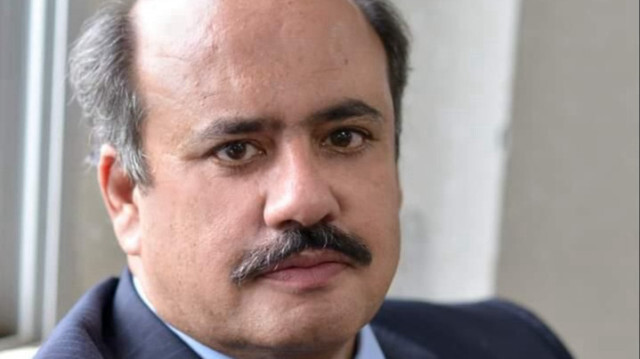
Despite the titanic transformation in global geopolitics, relations between Pakistan and Turkiye are progressing positively. They support each other politically and diplomatically at the regional and international forums. Besides, Ankara and Islamabad have been striving to increase their defense and economic cooperation and deepen their cultural ties. The people of Pakistan are indebted to the Turkish leadership’s steadfast and unflinching support over the Kashmir dispute with India. On June 1, 2022, President Erdogan said: "We continue to support the efforts put forward to resolve the Kashmir issue ... in line with the legitimate expectations of our Kashmiri brothers and within the framework of the UN resolutions." Simultaneously, the people of Turkiye sincerely appreciate the Pakistani leadership’s persistent support over the Cypris dispute.
The people’s relations have been older than the creation of modern Turkiye and Pakistan, which date back even much before the Khalifat Movement of the early twentieth century. As Khalifa of Islam, the Ottoman Sultan was the religious, political, and cultural symbol of universal Islamic unity for the Indian Muslims until 1924. From 1919 to 1922, the Khilafat Movement deepened the understanding of Turkiye among the Muslims of the Indian subcontinent. Hence, Pakistani cultural relations with Turkiye evolved on a solid conception of culture, where culture is closely tied to national history, language, and identity.
Turkiye was one of the first states to officially recognize Pakistan when it was founded as an independent state on August 14, 1947. Quaid-i-Azam Mohammad Ali Jinnah himself received credentials from the first Turkish Ambassador, Yahya Kemal Beyatli, on March 4, 1948. Since then, cooperation between the two states has progressed in various areas, such as defense, trade, investment, education, communication, and culture.
During the Cold War, Pakistan and Turkiye were together in the 1954 Baghdad Pact. After Iraq relinquished its membership in the Pact, the organization's name was changed to the Central Treaty Organization (CENTO) in 1959. However, CENTO increased physical contact, friendship, and mutual understanding between Pakistan and Turkey. The commonality in culture, religion, and geography resulted in the creation of the Regional Cooperation for Development (RCD) in July 1964, which evolved into the current Economic Cooperation Organization (ECO) in 1985.
The RCD and ECO were established jointly by Pakistan, Turkiye, and Iran. After the demise of the former Soviet Union, the ECO was expanded to include Azerbaijan, Kazakhstan, Uzbekistan, Turkmenistan, Kyrgyzstan, Tajikistan, and Afghanistan. The organization's objective is "contributing to the development of the Member States, removal of trade barriers within the ECO region, and developing intra-regional trade and promoting the ECO region’s integration with global markets, strengthening cultural and historical ties among the Member States.”
Pakistan and Turkiye agree that intraregional trade is vital for the entire region's economic progress and for mitigating the intensity of interstate conflicts. Therefore, both assign great importance to the activities of the ECO, which provides a platform to discuss ways to improve development and promote trade and investment opportunities.
Roads, railway tracks, and port facilities are prerequisites to augmenting interstate trade. Establishing the Istanbul- Tehran- Islamabad (ITI) Road corridor was a vital initiative in this context. In October 2021, Pakistan’s National Logistics Company trucks carried high-value goods from Karachi to Istanbul via Iran. It was the first transport of goods through the ITI-ECO road corridor that holds immense significance in bolstering the ties of ECO members.
Pakistan and Turkiye assigned great importance to bilateral trade and economic ties. 2009, they established the High-Level Cooperation Council to strengthen bilateral relations in various fields. It was upgraded to the High-Level Strategic Cooperation Council to strengthen bilateral relations in every walk of life. On August 12, 2022, a preferential trade arrangement, titled 'Trade in Goods Agreement', was concluded by Pakistan and Turkiye. Both sides agreed to set a $ 5 billion bilateral trade target by 2025. Currently, the priority sectors of cooperation include energy, trade, transportation, agriculture, drug control and education. Islamabad is encouraging Turkish investors to invest in Pakistani agriculture and energy sectors.
Pakistan and Turkiye have constituted an impressive defense cooperation guided through the institutional mechanism of the High-Level Military Dialogue Group. They regularly exchange high-level visits of the tri-services and training, joint exercises, and counter-terrorism drills. Besides, they are doing mutual defense procurements. For example, Pakistan purchased MILGEM Corvette Naval frigates, and Türkiye's purchased Super Mashak trainer aircraft. On May 20, 2022, at the launch of the jointly constructed MILGEM-class ship PNS Badar in Karachi, Prime Minister Shahbaz said it was “a shining example of the excellent cooperation” between the two countries in the defense sector.
Turkish people frequently use the word "Kardes” (brother) for Pakistanis and likewise they enjoy VIP treatment in Pakistan, with most of the Pakistani public describing Turkiye as their best friend and vice versa. Both nations have been variously characterized as "brothers," "indispensable partners," and even as "two states, one nation" -"Iki devlet, Tek millet.” Hence, Pakistan-Turkiye relations are intrinsic and instrumental.
Author
Dr. Zafar Nawaz Jaspal is an Islamabad-based analyst and Professor at the School of Politics and International Relations, and Dean Faculty of Social Sciences at Quaid-i-Azam University. He is a nonresident senior fellow of the Hong Kong Research Center for Asian Studies (RCAS). He is the author of Arms Control in South Asia: Politics, Postures, and Practices (2024): India's Surgical Strike Stratagem: Brinksmanship and Responses: and Nuclear Risk Reduction Measures and Restraint Regime in South Asia Twitter: @zafar_jaspal

